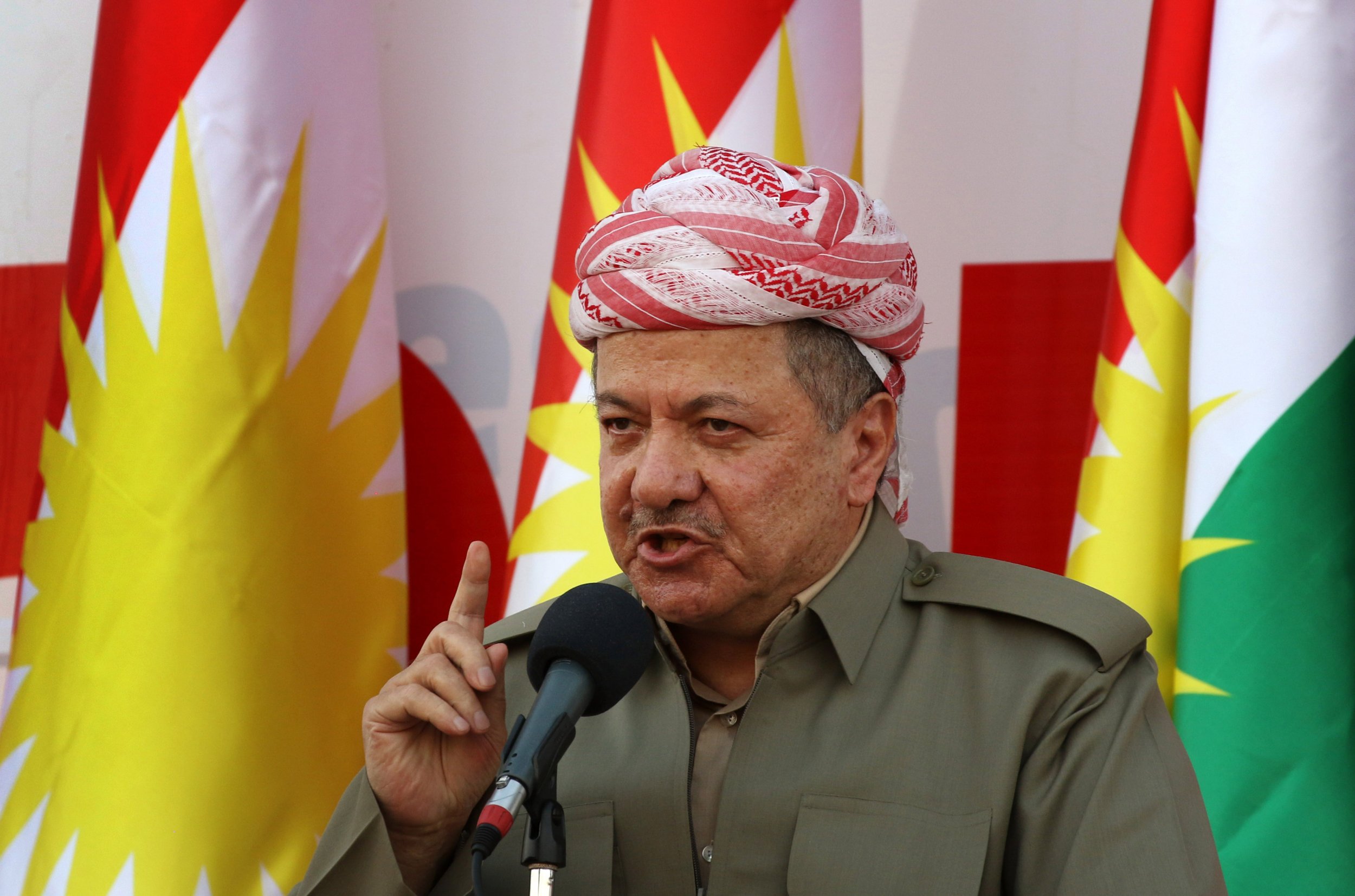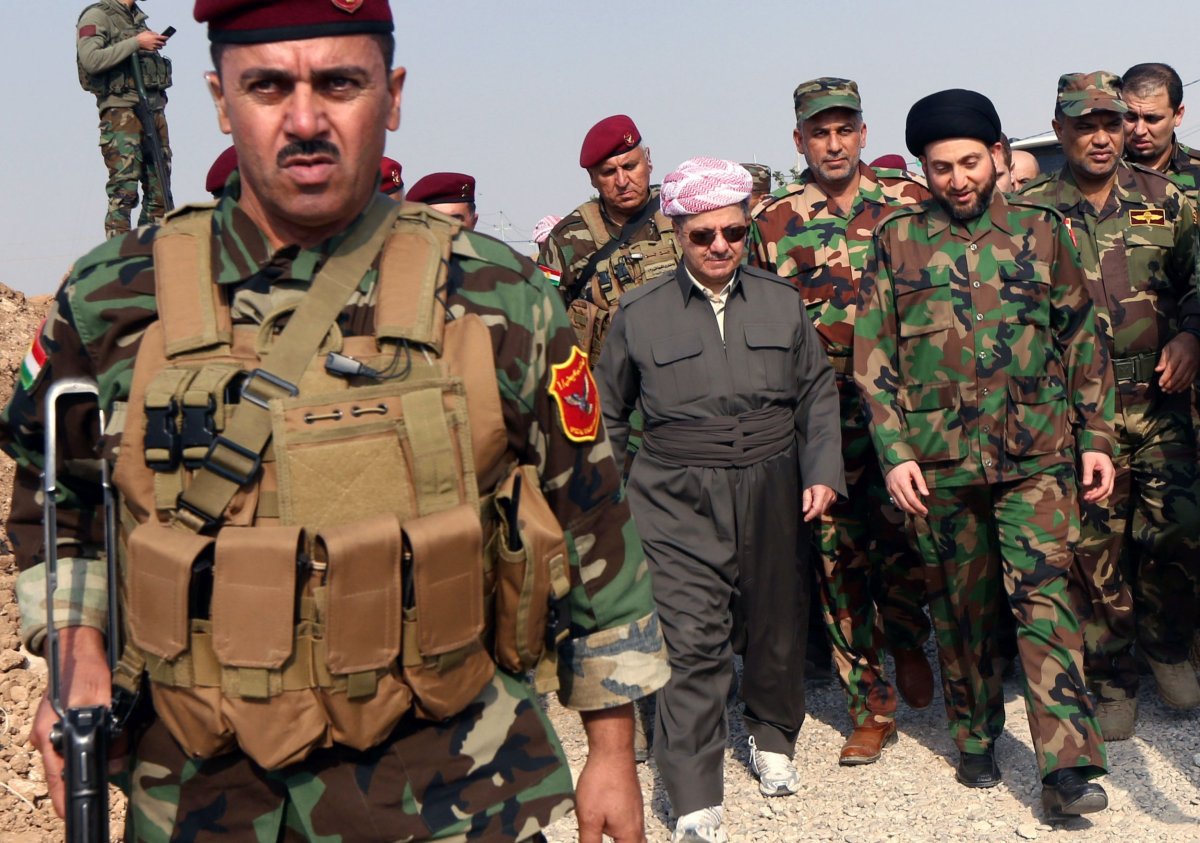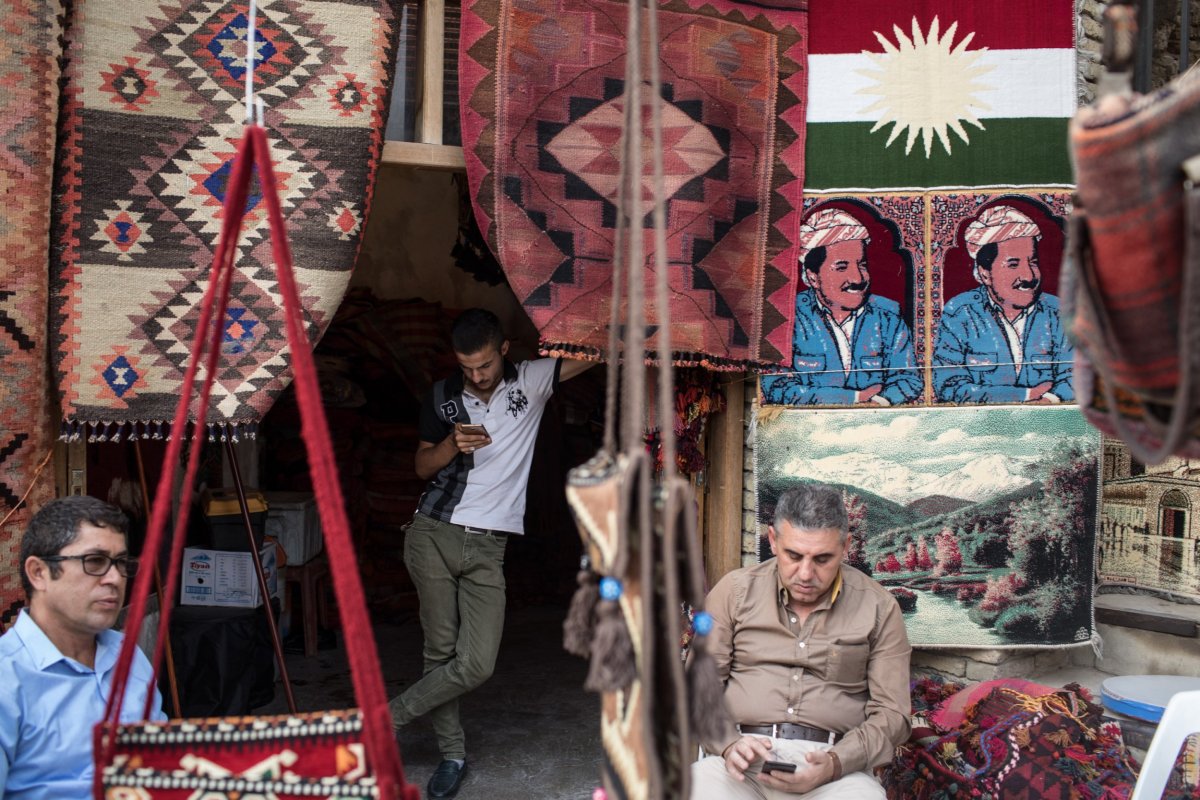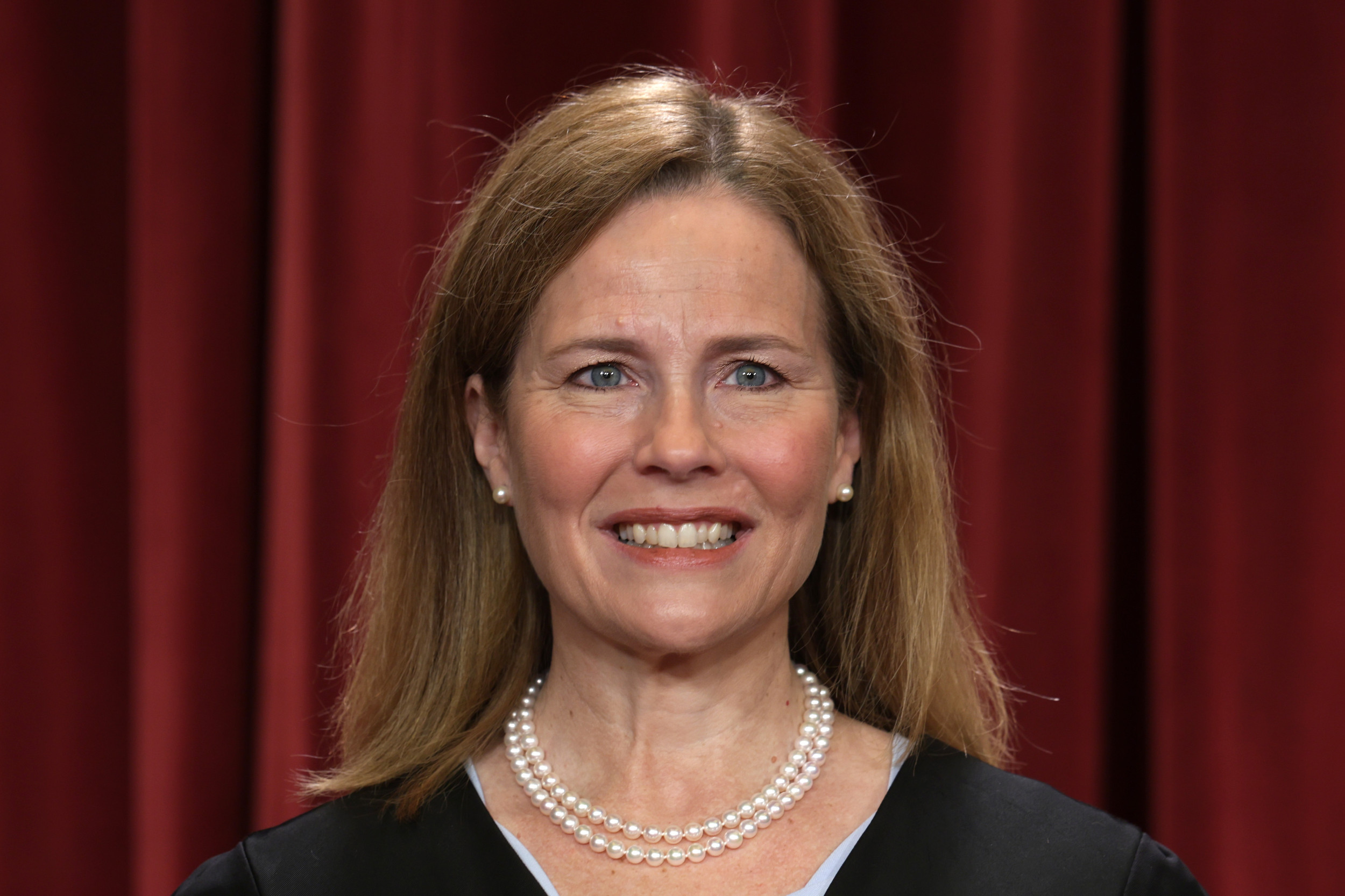
After weeks of chaos in northern Iraq that saw Baghdad retaliate to a Kurdish independence bid by re-occupying areas taken by the Kurds during the war against the Islamic State militant group (ISIS), there is one man who is paying for it the most: Kurdish leader Masoud Barzani.
A source in the Iraqi Kurdish leader's office confirmed to Newsweek on Sunday that Barzani would not be extending his term as leader on November 1. "Yes he is," the source said in a text message when asked if Barzani is handing over power. He will no longer act "as the president due to the end of his tenure and [he] won't accept any other extension," the source added.
The 71-year-old wrote a letter to the regional parliament on Sunday to inform lawmakers that he would end his presidency of the semi-autonomous region, which he has led since 2005.
"I refuse to continue in the position of president of the region after November 1," the letter read according to a tweet by his Kurdistan Democratic Party (KDP), one of the two major parties in Kurdish politics alongside the rival Patriotic Union of Kurdistan (PUK).
"I will remain as a Peshmerga," the letter added, referring to the Kurdish militia, of which Barzani has been a lifelong member.
As the son of veteran Kurdish nationalist Mustafa Barzani, Masoud has been involved in the Kurdish struggle since the age of 16, when he joined the Peshmerga. He took over the leadership of the KDP when his father died in 1979, alongside his brother, Idris Barzani, who died in 1987.
Read more: Donald Trump has betrayed the Kurds and Iraq will suffer for it

Barzani was part of the Kurdish militia during years of exile in Iran and a guerilla war with Saddam Hussein who, in 1988, used chemical weapons against the Kurds in Halabja. After the Peshmerga fought on the side of the U.S. during the first Gulf War, the Kurds were able to carve out a semi-autonomous state in northern Iraq and held elections in 1992.
When the two Kurdish parties, the PUK and Barzani's KDP, split the vote, infighting descended into a bloody civil war that was only ended in 1998. Kurdish territory was split between the PUK in the south-east of Iraq and the KPD in north-west until the 2003 U.S. invasion of Iraq, when the parties were reconciled and Barzani elected head of a regional government of Iraqi Kurdistan.
Barzani did not waste any time in pushing for complete autonomy for the Kurds in Iraq. In 2005, a referendum was held on independence with 98.8 percent of the population voting in favor. But his efforts were constantly thwarted by pressure from the U.S. (which feared a chaotic breakdown of Iraq should the Kurds leave) and Turkey, Iran and Syria, which feared similar actions from their own sizable Kurdish communities.
His star continued to rise and arguably peaked between 2014 and 2016 when Kurdish forces showed their effectiveness and value to the region in the battle against the Islamic State militant group (ISIS) that had overrun swathes of northern Iraq and wrestled towns and cities from Iraqi forces. At one point, the Kurds were the only force in Iraq that seemed to able to beat ISIS.
Barzani became a high-profile figure in the campaign to defeat the radical Islamist cult, vowing to "fight the terrorists to the last breath" and becoming a candidate for Time Magazine's Person Of The Year. He achieved runner-up status in that contest, in which he was described as a man whose life "encapsulates the history of a people whose time finally appears to have come."
While his family's domination of Kurdish politics (his son, Masrour, is a powerful force within the KDP) and allegations of corruption and nepotism have long dogged Barzani—whose term as president officially ended in 2015—his years as a guerrilla fighter and championing of the Kurdish cause (he is rarely seen out of Kurdish national dress) have made him a hero to millions of Kurds.
But it was this die-hard passion for Kurdish nationalism that would ultimately be his downfall. When he refused to negotiate on a September referendum for independence not recognized by any of Erbil's allies, let alone its enemies, Iraq responded aggressively, seizing Kirkuk—and its lucrative oil fields—as well as most of the territory the Kurds won back from ISIS in northern Iraq.

Outside of Iraqi Kurdistan, Barzani's last act will be remembered as a reckless, if not foolish, move that squandered probably the best chance the Iraqi Kurds have had for independence in over a decade. But amongst many Kurds the reading will be very different: for them the blame will likely fall on the international community, who used the Kurds and then abandoned them, once again.
Barzani exits Kurdish politics just one month after Jalal Talabani, the veteran Kurdish fighter, PUK leader and president of Iraq from 2005 to 2014, died in October. With both men—both giants of Iraqi politics—leaving the scene, an era ends in Kurdish history. Not just in Iraq, but in Syria, Turkey and Iran, the Kurds face a challenging and uncertain future.
Uncommon Knowledge
Newsweek is committed to challenging conventional wisdom and finding connections in the search for common ground.
Newsweek is committed to challenging conventional wisdom and finding connections in the search for common ground.
About the writer
Jack is International Security and Terrorism Correspondent for Newsweek.
Email: j.moore@newsweek.com
Encrypted email: jfxm@protonmail.com
Available on Whatsapp, Signal, Wickr, Telegram, Viber.
Twitter: @JFXM
Instagram: Read more
To read how Newsweek uses AI as a newsroom tool, Click here.








